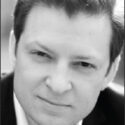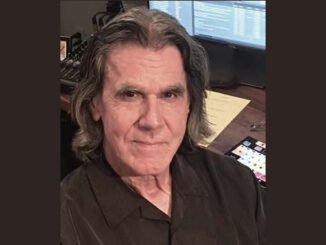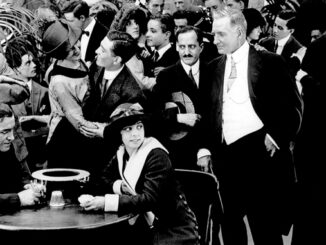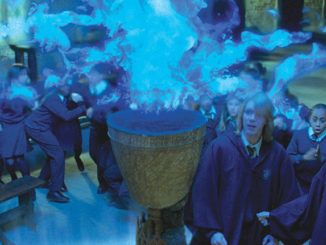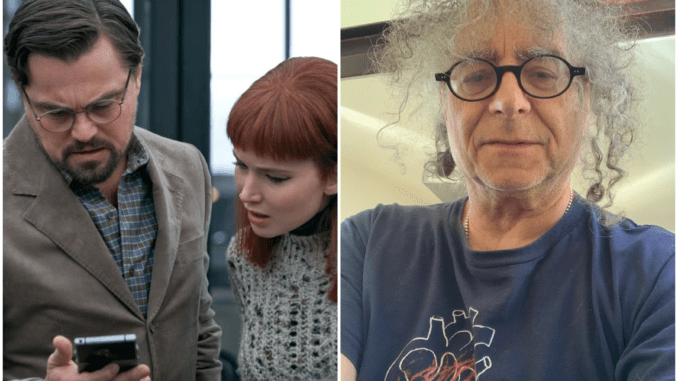
by Rob Feld
Hank Corwin followed his college girlfriend to New York as a young man, wanting to be a playwright. “I was romantic — I even painted my windows black, believe it or not, so I wouldn’t be distracted,” he said.
He got little gigs at The Public Theater and worked every odd job there was, from cab driver to bartender, “but kept getting fired. About two years later, I realized I was kind of a crummy writer,” he said. But when he took a job at a commercial film editing company, it was the first time in his life he found something he truly loved, choosing to sync dailies all night while his friends were out on the town. “I was just so full of love for this thing.”
Corwin developed himself as an editor cutting commercials and music videos in the early days of MTV, without traditional mentorship, leaving him to determine his own rules in the nascent days of a developing form that did not need to adhere to traditional narrative structures. Given Oliver Stone’s experimental proclivities, one can imagine the reasoning that led him to hire Corwin as an additional editor to reshape “JFK” — in Corwin’s very first role on a feature film — and rehire him to cut the non-linear, hyperactive “Natural Born Killers.”
Corwin’s career is marked by repeat collaborations with filmmakers like Stone, Terrence Malick, Robert Redford, and Adam McKay, with whom he recently completed “Don’t Look Up,” their third effort together. The film opened in theaters on Dec. 10 and will stream on Netflix starting Christmas Eve.
The movie follows astronomy grad student Kate Dibiasky (Jennifer Lawrence) and her professor Dr. Randall Mindy (Leonardo DiCaprio) after their discovery of a planet-killing asteroid headed directly at earth. They struggle with an apathetic public and a recalcitrant political class in a story that challenged Corwin to find a balancing act between humor and pathos, formality and abstraction. As he labored to find the film and its tone, Corwin drew from past experiences, evidence of which seeping through in ways that seem uniquely Corwin.
CineMontage: I think it’s interesting you started out wanting to be a writer. It’s a similar type of head to picture editing.
Hank Corwin: For sure. I do not think it’s coincidental. When I started, I would reconstitute film trims. You’d have the head of a shot and the tail of a shot but not the seminal part of the shot, which my editor used to make his cut. I’d see all this anticipation and the actor’s genuine human behavior before “action” was called, or after “cut” was called. Using that stuff, I found a way to communicate without using the obvious pieces. I love overlapping sound and overlapping picture. I learned a lot from watching the films of Robert Altman, and so many movies that [MPEG President] Alan Heim cut. Both of these filmmakers verified that you can really make an idea synergistic. It’s bigger than the sum of its pieces, if it’s done correctly.
CineMontage: What do you think made you stand out to Oliver Stone when he was looking for someone to rework “JFK”?
Corwin: What I was always trying to do is find the moments where you saw reality. You didn’t see an actor, you saw the actor become the character. I would use pieces before the slate so the actors were just themselves, not knowing the camera was on them. It made for a choppy viewing experience, occasionally. I was learning. Being able to juxtapose those moments with the seminal part of the action made the character feel more human. One of the great things I learned from Terry Malick was, he used to say, “I never want to see the hand of the artist.” He never wanted to see a match cut or a camera move that called attention to itself. “Editing naïve,” so to speak. Just the pure moment.
CineMontage: How did your collaborative process with Stone develop over time? Obviously, you got his trust during “JFK” and into “Natural Born Killers.”
Corwin: He trusted me and I love collaborations. I was very close with Robert [Bob] Richardson, who’s just this brilliantly gifted director of photography. We would talk philosophically about where we wanted to go. Bob might shoot a shot of a flower being blown and bending in the wind. And then he might shoot trees blowing and the angles would be a little bit askew, the way you would see it if you were looking up at the sky — not the way a lesser DP would compose it. So, my collaboration with Oliver was part of a triptych with Bob Richardson. I’ve been very lucky. In “Don’t Look Up”and the last three films with Adam McKay, I’ve worked very, very closely with our composer Nick Britell.
CineMontage: Did Stone orchestrate that dynamic?
Corwin: No, no. Oliver pit us against each other because, I think he liked the frisson, the dramatic tension. So, we’d do it on the sly but he was cool with it because he got the results he wanted.
CineMontage: What did he want from you as a collaborator?
Corwin: You know, I am not sure. I think I helped turn “JFK” on its ear a bit. And then with “Natural Born Killers,” he was very generous with me at the time. I honestly didn’t really know what I was doing as a first editor. I was not an administrator and I had never put together a film, never worked in the feature system. Oliver brought in Brian Berdan, a wonderful editor to be my co-editor. He saved my ass. I think I had my gift, I had my moments, but Oliver was able to see something in what I did that was deeper than what I perceived. I’ve always thought in metaphors and I cut in metaphors and I always have subtext. I hadn’t really developed my whole world view of cutting film at that time. And Oliver was very generous in allowing me to develop it in “Natural Born Killers.” I was fortunate and blessed to have Oliver let me grow.
CineMontage: There were so many formats used in “Natural Born Killers.” Did the logistics of managing them inform the creative choices made?
Corwin: You know, not really. And I’ll tell you why. Because when I learned to edit, I learned on film. I would always make Kem rolls. I would screen 10 minute rolls of 35mm film, cut the selects out of them, and put them in a Kem roll. Then I’d run the roll back and forth on my flatbed, back and forth, and I’d find the pieces I needed. I brought that archaic way of thinking to everything I cut. I remember when we did “NBK,” we were working on these little video controllers that didn’t even have time code. Even though Bob shot super eight, hand crank cameras between 18 and 12 frames a second, 35mm, super 16, rudimentary video. Black and white and color stock. And when I finally cut digitally on “The Horse Whisperer,” I still cut the way I had cut film. So, I always knew where everything was and I always was going back and forth and discovering and rediscovering moments. To this day I cut this way.
CineMontage: What has your working process become with Adam McKay?
Corwin: We talk a great deal and we do have a shorthand now. He knows that I’ll use non-sequitur moments. In “Don’t Look Up,” he knew I wanted to use nature and behavior so he’d shoot those moments, not knowing necessarily how I’d use them. Adam knows that I like to think in terms of collage as opposed to montage — especially in this film. I don’t want to make scenes overtly polemical. I don’t want to make scenes overtly political. I think the politics that are really important are the politics of emotion and the politics of will.
CineMontage: So what is the true north you stick to for every scene?
Corwin: Honestly, it’s the truth. Granted, ultimately the only real truth in the universe is the universe itself. We sentient beings have interpretations. There’s an emotional component. It’s like this limbic brain that we have that most mammals have. That insects have, you know? It’s the need to propagate, the need to congregate, and the desire to eat and to be eaten. Those are real truths. I’m sort of appalled at how kids have been taught film and film theory now. I focus on the existential struggle, the Hegelian dialectic, you know? We fight. We live.
CineMontage: What are McKay’s priorities when choosing a take?
Corwin: He’s acutely aware of our artifice. He wants all actions to be truthful and believable. He’s a guy who will have brilliant performances and these brilliant scenes, but if the overall arc of the film isn’t working correctly, he’ll pull them out. I mean it sounds so simple, but I’ve never worked with a director who’s so willing to kill his babies. He’s made me a much better editor. I get so attached to things. I’m very emotional. He’s tougher than I am.
CineMontage: What was the greatest challenge for you of “Don’t Look Up” ?What did you have to find?
Corwin: It was the tone of the movie. It was a moving target. Initially, I saw this film as a great sadness, a real tragedy. I didn’t see this as a comedy. Even before Adam shot anything, I was going to cut this beautiful opera; the opera I wanted to cut my whole life. Most editors have one in their heads. And then I started getting these unbelievably varied performances. Honestly, if you watch the movie and see the last 20 minutes from the time they look in the sky and see for the first time the comet is visible, to the end, that was the tone I wanted for the entire movie. Great pathos.
If I had done that, the film would have been very earnest and I suspect it wouldn’t have been successful. Adam kept wanting to balance the tone. We had to have levity. It’s a comedy, but everything must be plausible. He had me constantly pulling back the comedy. I don’t come from a funny world like Adam does. I was so proud of myself that I was making these very funny scenes, which we discovered were upending the movie. I had to make the scenarios more serious and somewhat plausible, even if they were funny. Obviously, it’s hard when you have someone like Jonah Hill, who’s cracking wise and upending Meryl Streep. It’s an interesting dynamic.
It was a process of discovery. I’d cut with Adam and see that sometimes the film in its entirety felt unreal; comedy or sadness overwhelmed the story. And when we pulled too much comedy or sadness out, the movie would quickly become a bit of an onslaught. I’m a very internal editor, I’m always working with subtext, and this film was a bit of a shock to the system, but I hope that we got it back to this very emotional, very poignant place at the end. I’d like to think we succeeded.
My mother was always telling me that I was distracted and that I was off in space. I always have been off in space. This movie allowed me to be off in space and be very zonal and still get paid.


